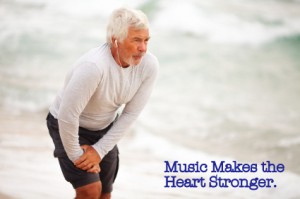Did you ever notice how you seem to quickly unwind or feel a boost of positive energy when your favorite song comes on the radio? Well, studies show that music can help lower high blood pressure. In general, listening to at least 30 minutes of your favorite music daily relaxes the body, including your blood vessels, resulting in lower blood pressure and reduced stress levels. While the music you like will do the trick, reports show that classical music is the most effective, especially when exercising.
Neuroscientist Dr. Jack Lewis, explains that “‘Energetic, but not overly fast classical music, can be ideal in the gym. Not only does upbeat music increase speed, strength and endurance, also the relaxing qualities of classical music appear to reduce heart rate, blood pressure and lower perceived exertion, at the same time.’”
Dr. Lewis further explained that in general “music allows people to exercise slightly harder and slightly longer – and classical music has added benefits.” You can mix up your music selection with your favorite tunes as long as the beats match your exercise routine. And why not fit in a few classical pieces in between your favorites, and see if it really makes a difference?
A second 3-month study by Japanese researcher Eri Eguchi, where individuals twice a month participated in 1-hour sessions listening to their favorite music, lowered their average systolic blood pressure (the top number) by 5-6 points. The people in the study who didn’t listen to music discovered that their blood pressure remained the same.
Here is a list of recommendations we put together for you from Dr. Lewis’s report and other studies:
1) Match your music with your heartbeat. Faster music beats are better as your exercise session gets harder. Plus, faster beats are not only more motivating, they also ‘instruct’ the brain to energize the body.
2) Listen to music before exercising and during. It’s a great way to get into a good and energized mood, and prepare the body for a great workout.
3) Choose tunes that have sentimental value. In other words, choose songs that mean something to you personally, remind you of something motivational or inspiring. Maybe a song from your favorite movie or that reminds you of a great moment, holiday celebration, summer vacation or someone special.
4) New to classical music? Then start with Beethoven’s Symphony No 4, fourth movement.
5) Avoid music that you don’t like, annoys or irritates you. Such music is not effective and can actually demonstrate the opposite effect, and increase your blood pressure
So get started and let us know if these tips worked for you.
Learn more from our sources:


